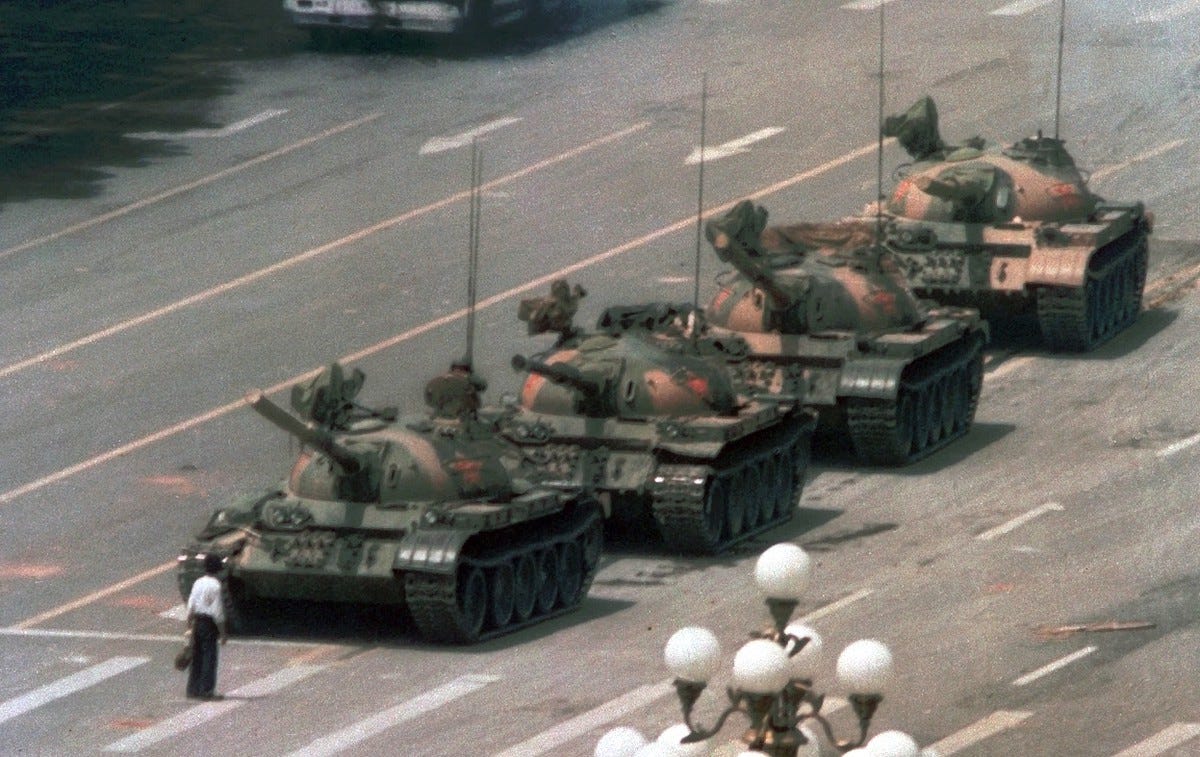I first met Cecilia Birge while I was working on an episode of Back in America looking at racism toward people of Asian origin.
As I interviewed Cecilia, I soon realized that my initial expectations paled in comparison to the depth and loss of her story.
“I was born in the dark ages of modern Chinese history. I was born at the end of the cultural revolution.”
Cecilia’s life is what movies are made of. She grew up in a Chinese prison camp in the mountains; at night, she could hear the wolves howling.
“When I was four I had to go with my mom to a labor camp. I was a kid and to me, those are the happiest time. I got to play in the mountains. We lived in a shed with no electricity nor running water,” she said.
She continued: “The scary part was that our job was to make sure that the crops that were planted weren’t taken away by the birds and other animals and at night, I could hear the wolves hollering, and then the next morning you would hear reports of chickens and rabbits taken by the wolves. As a kid I thought: are the wolves gonna take me? Will they come and attack me?”
Cecilia was a student in Beijing and, in 1989, she participated in the Tiananmen Square protests.

In the 1980s, the economy began to grow in China, she recalls. But it was growing unevenly. It was also a time when the American school of thoughts began to percolate within China. Concepts like equal opportunity became more prominent and accepted.
The student-led demonstrations in Tiananmen called for democracy, free speech, and a free press in China.
The students had grown frustrated with the limits on political freedom in the country—given its one-party system with the Communist Party holding sway—and ongoing economic troubles. Although China’s government had instituted several reforms in the 1980s that established a limited form of capitalism in the country, the poor and working-class Chinese still faced significant challenges, including a lack of jobs.
They were halted in a bloody crackdown: the Tiananmen Square Massacre, by the Chinese government on June 4/5, 1989.
“Never in my life did I imagine that guns would be pointed at students. I heard bullets, nonstop. Then I saw students with blood on their shirts, on their faces...” recalls Cecilia.
“If you go to China today, the topic is heavily censored. Nobody talks about it. And what concerns me more than anything else is that the Tiananmen Square protests will probably not go down history and will be forgotten.”
Cecilia’s career stretches from Wall Street where she was a bond analyst to Montgomery, New Jersey, where she served as mayor. Now, she heads Princeton High School's coaches where she is was recently named the high school Assistant Principal.
In our interview, I wanted to hear how Cecilia had coped with the pandemic.
One of the best ways to help oneself is to help others, and that’s exactly what Cecilia has done.
“I am managing well,” she writes, “in large part because I have been very engaged with the communities I belong to. When the pandemic first started I was involved with the local Chinese community and organized a fundraising effort to purchase and donate much-needed personal protective equipment (PPE). Now that there are ample supplies of N95 masks and other protective gear, I’m glad that PPE is no longer part of our daily vocabulary. In the summer, I taught a class online and then began my new job as an Assistant Principal at Princeton High School. The new position requires me to be in the building every day, so I am glad that I have had the opportunity to work with a limited number of people and be engaged mentally.”
Americans adopt roughly 3.2 million pets from shelters each year. And early in the pandemic pet fostering and rescue have been exploding. Like many families, Cecilia got a new puppy. She is named Willow. “She keeps us busy and makes me do a lot more walking than before,” she said.
When asked what else has happened in her life since our conversation for Back in America in June 2020, Cecilia writes: “As the new Assistant Principal at Princeton High School, I now have a bigger platform, and a broader view of the challenges the pandemic has had on our kids. I took the position in July, so I was deeply involved in the process of reopening our schools. We are very lucky in the way that, as of today (Jan. 16, 2021), there has been zero in-building transmission of COVID. Now, we are beginning to look ahead and are brainstorming about how to address the issues of learning loss as well as our students’ mental health.”
Cecilia has experienced tough times. Yet, she said that she still can’t quite process what happened on Capitol Hill, in Washington, D.C. on January 6.
“I can’t make sense of how something like this could happen in America… I am particularly angry when I look at pictures of how many armed National Guards there were during the Black Life Matters protest and how many people hanging on the wall when the mob attacked the Capitol without any law enforcement around. I don’t know how to explain it to my students…”
To help her cope with the stress of the current situation Cecilia listens to classical pianist Yuja Wang as background music.
To hear more about Cecilia Birge's fascinating life, check out Cecilia Birge - Anti-Asian Racism during the Pandemic – Growing-up in Chinese Labor Camp – Student on Tiananmen Square protests from July 2020, available on Stitcher, Podbean, Spotify, or wherever else you get your podcasts.
https://www.history.com/topics/china/tiananmen-square
https://apnews.com/article/31e3e60e7ea6bc4566b0ee3998ab98a6
https://www.npr.org/2021/01/15/957362053/january-6-inside-the-capitol-siege
https://www.psychologytoday.com/us/blog/between-cultures/201805/in-helping-others-you-help-yourself
https://www.theatlantic.com/photo/2012/06/tiananmen-square-then-and-now/100311/




